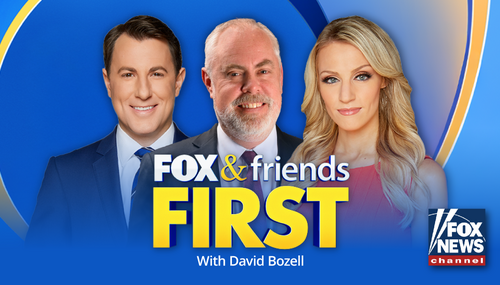 It would appear that the Associated Press has nominated Calvin Woodward to be their go-to guy for "Fact Check" pieces that blow up political arguments and assertions by the White House and partisan Democrats.
It would appear that the Associated Press has nominated Calvin Woodward to be their go-to guy for "Fact Check" pieces that blow up political arguments and assertions by the White House and partisan Democrats. In late April (covered at NewsBusters; at BizzyBlog), Woodward, in an item headlined "Obama disowns deficit he helped shape," blistered Barack Obama and his administration for its attempt to pin the blame for this exploding federal deficits and national debt on his predecessor. This of course didn't prevent the administration from continuing to blame Bush 43 for most of this past fiscal year's deficit of $1.417 trillion; it also didn't prevent Woodward's AP colleagues from mostly parroting a White House claim he had long since debunked.
In today's Fact Check ("Health insurer profits not so fat"), the AP writer ripped into what has seemingly been a mandatory talking point any time a Democrat brings up health care: the supposedly excessive profits of health insurance providers.
Woodward found that the Democrats' claim doesn't survive even cursory scrutiny:
Quick quiz: What do these enterprises have in common? Farm and construction machinery, Tupperware, the railroads, Hershey sweets, Yum food brands and Yahoo? Answer: They're all more profitable than the health insurance industry.
In the health care debate, Democrats and their allies have gone after insurance companies as rapacious profiteers making "immoral" and "obscene" returns while "the bodies pile up."
Ledgers tell a different reality. Health insurance profit margins typically run about 6 percent, give or take a point or two. That's anemic compared with other forms of insurance and a broad array of industries, even some beleaguered ones.
Profits barely exceeded 2 percent of revenues in the latest annual measure. This partly explains why the credit ratings of some of the largest insurers were downgraded to negative from stable heading into this year, as investors were warned of a stagnant if not shrinking market for private plans.
Insurers are an expedient target for leaders who want a government-run plan in the marketplace. Such a public option would force private insurers to trim profits and restrain premiums to compete, the argument goes. This would "keep insurance companies honest," says President Barack Obama.
.... Health insurers posted a 2.2 percent profit margin last year, placing them 35th on the Fortune 500 list of top industries. As is typical, other health sectors did much better - drugs and medical products and services were both in the top 10.
.... were the Bush years golden ones for health insurers?
Not judging by profit margins, profit growth or returns to shareholders. The industry's overall profits grew only 8.8 percent from 2003 to 2008, and its margins year to year, from 2005 forward, never cracked 8 percent.
Woodward, along with many others in the blogosphere commenting on his work, misses one important point, namely that what matters to investors isn't profit margin itself as much as return on invested capital. Grocery chains, for example, typically earn very small margins. As seen in these financials from the past four years, The Kroger Company, usually seen as well-managed, has had a profit margin (net income divided by revenues) of well under 2%.
Nevertheless, Woodward's point that taking every penny of profit out of the health insurance industry would do little to lower premiums stands, while Democrats continue to cynically exploit public ignorance about the size of profit margins achieved at companies in general and in the insurance industry in particular.
The next line of leftist argument is that the government would somehow achieve lower savings by trimming administrative costs in comparison to levels seen in the private sector. The experience with Medicare refutes that argument. The Heritage Foundation's Robert Book showed back in late June (HT Patterico) that Medicare’s administrative costs per beneficiary is actually higher, despite myriad obvious advantages (much larger patient pool, not having to pay income and other taxes, etc.) than that of private insurers. The feisty Book deliciously ripped into New York Times columnist Paul Krugman when the New York Times columnist launched a substance-free attack on his work.
Another claim of statist health care fans is that the government won't heartlessly reject claims like insurance companies do. Oops: As noted in early October (at NewsBusters; at BizzyBlog), the American Medical Association found that that Medicare's claim denial rate is higher than that of any other private insurer, and almost 70% higher overall than the private insurers' average denial rate.
There's one other problem with Woodward's Fact Check, expressed succinctly by Hot Air's Ed Morrissey. It's a big one, though not quite as big as it would have been before the Internet came along: "The AP finally got around to it today … on a Sunday, where it’s likely to be buried."
It only stays buried if news consumers who care allow it to happen.
Cross-posted at BizzyBlog.com.




